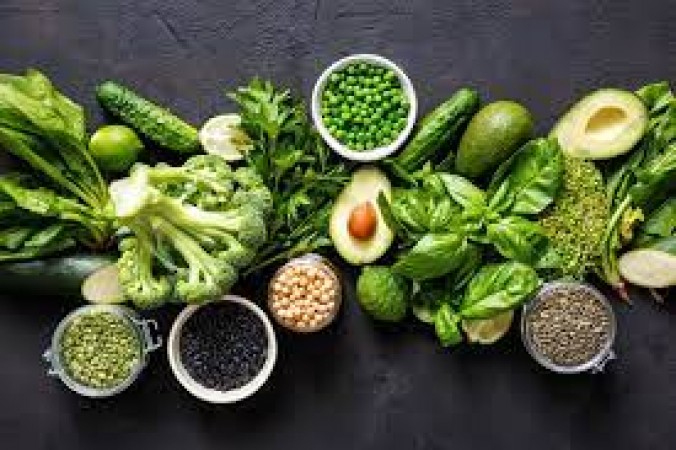
In today's fast-paced world, where lifestyle diseases like diabetes are on the rise, making conscious dietary choices becomes crucial. While medications are available to manage diabetes, incorporating the right foods into your diet can significantly contribute to controlling blood sugar levels. Among the plethora of options, raw vegetables stand out as an exceptional choice. Packed with essential nutrients, fiber, and antioxidants, these vegetables can be a game-changer for individuals looking to keep their diabetes in check. In this article, we'll explore five raw vegetables that are nothing short of a boon for managing diabetes. Diabetes is a chronic condition that demands careful attention to one's diet. While cooked vegetables have their benefits, raw vegetables offer a unique advantage in terms of preserving nutrients and providing a satisfying crunch. Let's dive into the world of raw vegetables and uncover their potential to positively impact diabetes management.
Raw vegetables are a nutritional powerhouse. They are rich in dietary fiber, which aids in slowing down the digestion of carbohydrates and prevents rapid spikes in blood sugar levels. Additionally, raw vegetables contain an array of vitamins, minerals, and antioxidants that contribute to overall health. Incorporating them into your diet can offer benefits beyond diabetes management, including improved digestion, weight management, and enhanced immune function.
Leafy greens such as spinach, kale, and Swiss chard are low in calories and carbohydrates while being abundant in fiber and essential nutrients. These vegetables contain magnesium, which plays a crucial role in insulin secretion and sensitivity. Moreover, they boast an impressive antioxidant profile that helps combat inflammation—a common issue in diabetes.
Carrots are not only visually appealing but also a diabetes-friendly option. They are a good source of beta-carotene, a compound that not only gives them their vibrant color but also supports eye health. The fiber content in carrots aids in maintaining steady blood sugar levels, and their natural sweetness can satisfy cravings without causing drastic blood sugar fluctuations.
Cucumbers are primarily composed of water, making them an excellent choice for staying hydrated. They also contain fiber and are incredibly low in calories, making them an ideal snack for those managing diabetes. The combination of hydration and fiber contributes to better blood sugar control.
Broccoli is a cruciferous vegetable that deserves a special place in a diabetic's diet. It is rich in sulforaphane, a compound known for its potential to lower blood sugar levels and improve insulin sensitivity. Additionally, broccoli provides a significant amount of vitamin C, which can have positive effects on diabetes-related complications.
Bell peppers come in vibrant colors and are packed with vitamins A and C, both of which have antioxidant properties. These antioxidants help reduce oxidative stress and inflammation in the body. The fiber content in bell peppers further aids in regulating blood sugar levels and promoting satiety.
Incorporating raw vegetables into your diet doesn't have to be complicated. Here are some practical tips to help you get started:
Snack Smartly: Keep pre-cut raw vegetables like cucumber, bell pepper strips, and carrot sticks on hand for quick and healthy snacks.
Create Colorful Salads: Mix and match different raw vegetables to create visually appealing salads that are both nutritious and delicious.
Blend in Smoothies: Add leafy greens like spinach to your morning smoothies for an extra nutrient boost.
Use as Wraps: Instead of tortilla wraps, use large lettuce leaves to create wraps filled with lean protein and other veggies.
While raw vegetables are a fantastic addition to your diet, it's essential to maintain a balanced approach. Pair them with lean proteins, whole grains, and healthy fats to create well-rounded meals that help stabilize blood sugar levels.
Obesity is a significant risk factor for type 2 diabetes. Raw vegetables, with their low calorie and high fiber content, can support weight management efforts. Additionally, certain compounds found in raw vegetables, such as sulforaphane in broccoli, contribute to improved insulin sensitivity, aiding in diabetes management.
Creating a diabetes-friendly salad is easy and enjoyable. Try a mix of spinach, kale, cherry tomatoes, cucumbers, and grilled chicken. Top it off with a light vinaigrette dressing for a satisfying meal that keeps your blood sugar in check.
For some individuals, the taste or texture of raw vegetables might be a challenge. To overcome this, consider experimenting with different preparation methods. Roasting certain vegetables or incorporating them into flavorful dips can make them more appealing.
While raw vegetables offer numerous benefits, they may not be suitable for everyone. Individuals with certain digestive conditions might find raw vegetables hard to digest. Additionally, portion control is essential, as overconsumption of even low-calorie foods can impact blood sugar levels.
Nutritionists emphasize the importance of variety and moderation. Raw vegetables can undoubtedly contribute to diabetes management, but they should be part of a well-rounded diet. Consulting a nutritionist can provide personalized guidance based on individual health needs. Incorporating raw vegetables into your daily meals can be a transformative step towards managing diabetes effectively. Their combination of fiber, nutrients, and antioxidants can contribute to stable blood sugar levels and overall well-being. By making simple yet strategic dietary choices, you have the power to take charge of your health and keep diabetes under control.
Dive into the Health Benefits of Watercress
Avoid These 5 Foods Before Bed to Prevent Acidity
Natural Remedy: Drinking Clove-Infused Milk for Men's Health